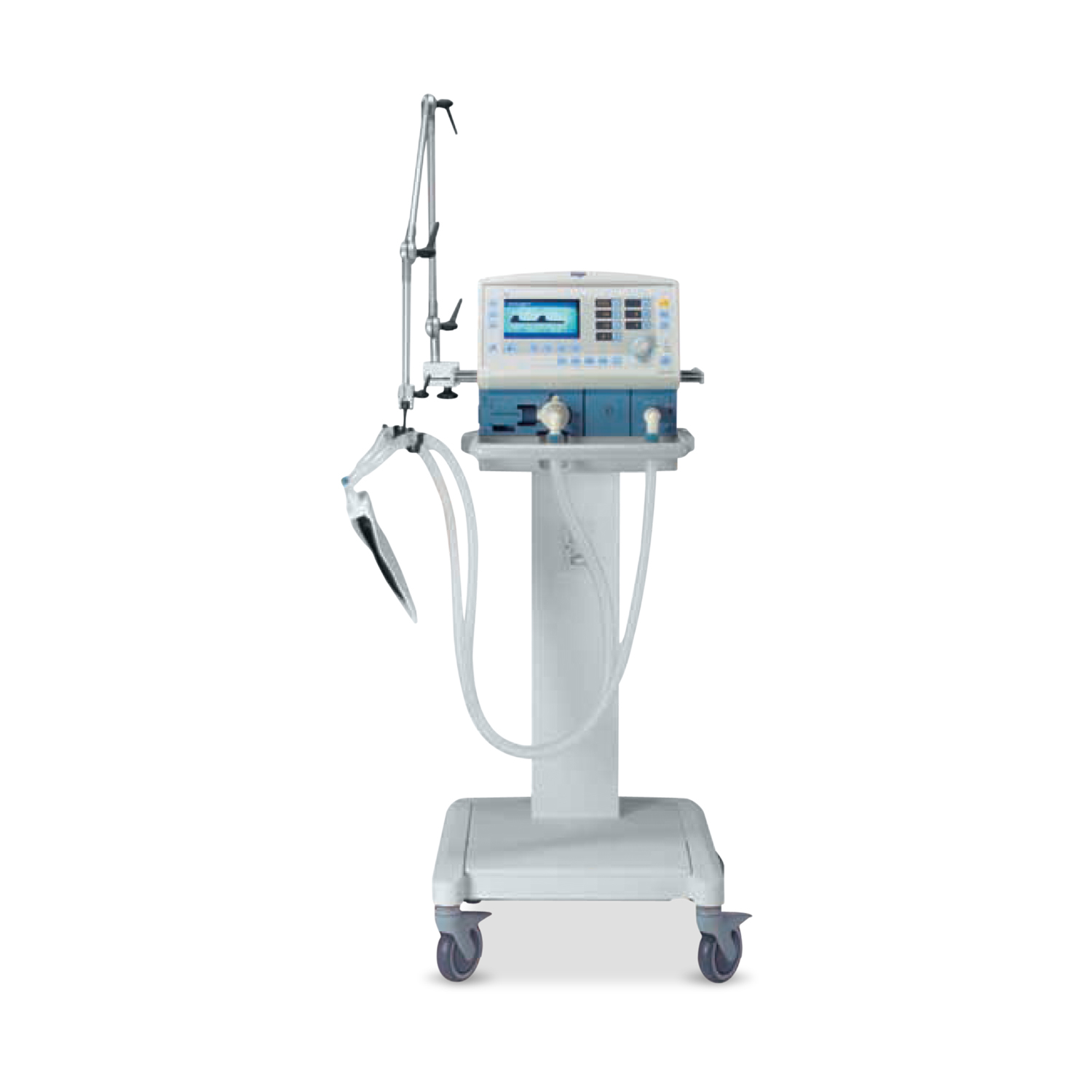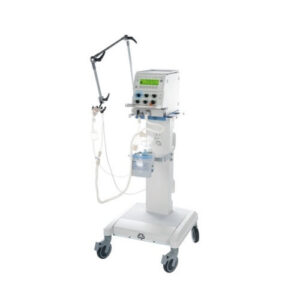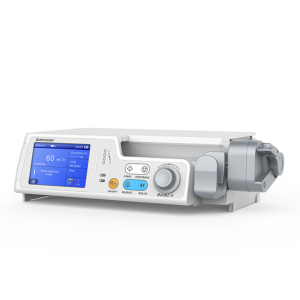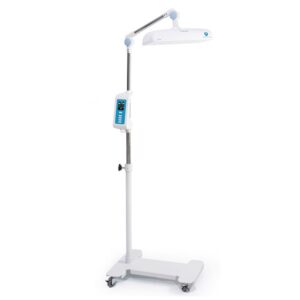Technical Data
Ventilation modes
‒ IPPV (CMV), IPPVAssist (CMVAssist)
‒ SIMV, SIMVASB (SIMV/PS)
‒ CPAP, CPAPASB (CPAP/PS)
‒ BIPAP1), (PCV+) (optional), BIPAP1)ASB (PCV+/PS) (optional)
Enhancements
‒ NIV – Non Invasive Ventilation with optimized alarm system and automatic leakage compensation (optional)
‒ AutoFlow® – Automatic adaptation of the inspiratory flow in volume orientated ventilation modes (optional)
‒ LPO - Low Pressure Oxygen. Independant oxygen supply, e.g. with an O2 concentrator (optional)
‒ Graphic screen - Advanced ventilation monitoring (optional),
‒ Nurse call - Connection for transmitting alarm signals to a central alarm system (optional)
Patient type Adult, pediatric
Ventilation frequency 2 to 80 bpm
Inspiration time 0.2 to10 s
Tidal volume 0.05 to 2.0 L, BTPS
Inspiratory flow 0 to180 L/min
Inspiratory pressure 0 to 99 mbar3) (cmH2O)
PEEP/interm. PEEP 0 to 35 mbar (cmH2O)
Pressure support/ASB 0 to 35 mbar (cmH2O) (relative to PEEP)
Flow acceleration 5 to 200 mbar/s (cmH2O/s)
O2-concentration 21 to100 Vol. %
Trigger sensitivity 1 to15 L/min
Measured value display
Airway pressure measurements Peak pressure, plateau pressure, mean airway pressure, PEEP 0
-100 mbar (cmH2O)
Minute volume (MV) Total MV, spontaneous MV 0 to 99 L/min, BTPS
Tidal volume VT Inspiratory VT, expiratory VT 0 to 3999 mL, BTPS
Breathing frequency Total and spontaneous breathing frequency, 0 -150 bpm
Inspiratory O2-concentration 21 to100 Vol. %
Breathing gas temperature 18 to 48 °C (sensor optional)
Curve displays Airway pressure / time, flow / time
Ventilation ratio (I:E) 150:1 to 1:150
Alarms
Airway pressures high / low
Expiratory minute volume high / low
Tidal volume high / low
Apnea-alarm time 15 to 60 sec
Spontaneous breathing frequency high
Inspiratory O2-concentration high / low
Inspiratory breathing gas temperature high
Performance data
Maximum flow for pressure assist/ spontaneous breathing 180 L/min
Valve response time T0...90 ≤ 5 ms
Control principle time-cycled, volume-constant, pressure-controlled
Safety valve opening pressure 100 mbar (cmH2O)
Emergency valve automatically enables spontaneous breathing with filtered ambient air if air and O2 supply should fail.
Automatic gas switch-over function if O2 supply fails
Output for pneumatic medicament nebulizer synchronized with inspiration
Operating data
Main power connection 100 V to 240 V, 50/60 Hz AC, 10 to 36 V DC
Typical power consumption 100 W
Internal battery approx. 60 min (optional extension up to 7 h)
Digital machine outputs
Digital output and input via an RS 232 C interface, Dräger Medibus standard
Gas supply
Air Turbine technology
O2 gas supply 3 bar (39 psi) to 10 % up to 6 bar (87 psi)
Dimensions and weights
Dimensions W x H x D (without trolley) 380 x 383 x 358 mm (15.0 x 156.1 x 14.1 inches)
Weight (basic device) approx. 24 kg (53 lbs.)
Diagonal screen size 6.1" TFT color screen






